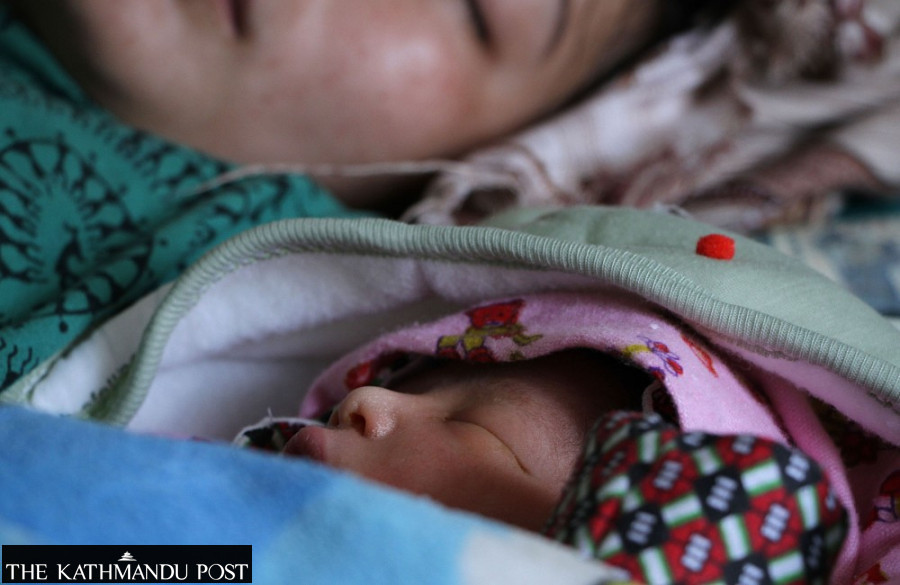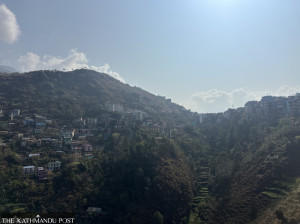Karnali Province
Early pregnancies and healthcare gaps fuelling neonatal mortality in Jumla
As many as 29 infants below one month died in the district in the last fiscal year, according to the District Public Health Office, Jumla.
DB Budha
A 17-year-old girl from ward 7 of Sinja Rural Municipality in Jumla gave birth to a baby at Shanigaun birthing centre near her residence in June. It was a premature birth of seven months. The health institution immediately referred the newborn to Karnali Academy of Health Sciences as the baby could not latch.
The health workers at the health post advised the postpartum mother’s family to admit the infant to the Neonatal Intensive Care at the hospital, but they decided to take the baby home. “The baby was referred to the academy, but the family took the baby home. The newborn died within 24 hours,” said Ramesh Rawal, in charge of the Shanigaun Health Post.
According to health workers, one of the reasons behind the premature birth was the mother’s young age. “Her [Sangita’s] uterus was not well developed and her body could not provide a conducive environment for the foetus,” said Punam Rokaya, an auxiliary nursing midwife at the health post. “That’s why the baby was born prematurely.”
Sinja Rural Municipality had arranged for an ambulance for the mother and the newborn to be taken to the Karnali Academy of Health Sciences free of cost at the request of the Shanigaun Health Post. “But the guardians were against taking the baby to the academy, claiming that the baby would be fine at home,” said Lalit Rokaya, chief of the health unit at Sinja Rural Municipality.
According to Lalit, the rural municipality provided free ambulance service to 22 pregnant women and new mothers in the last fiscal year of 2022-23 and to 12 in the current fiscal year. “We have been working relentlessly to reduce maternal and infant mortality. But the people are reluctant to go to well-facilitated hospitals due to their traditional mindset,” said Lalit.
Nineteen-year-old Aaisa Upadhyaya from ward 5 of Kanakasundari Rural Municipality was taken to Hadsinja Health Post for safe delivery in the eighth month of her pregnancy. The baby born prematurely was weak and ailing at the time of the birth. The health workers referred the newborn to the Karnali Academy of Health Sciences for treatment. The baby died in the course of treatment at the academy.
“We had referred the baby to the academy as the treatment was not possible at the health post. The baby suffered from pneumonia,” said Birendra Upadhyaya, the in-charge at Hadsinja Health Post. He suspected that the baby died due to the delay in taking the baby to reach the hospital. It takes around four hours to reach the academy from Kanakasundari in an ambulance.
Priya Acharya, an auxiliary nursing midwife at Hadsinja Health Post, said giving birth at an early age and lack of nutritious food during pregnancy caused the premature birth and frail health condition of the newborn.
The 17-year-old girl and Upadhyaya are not the only unlucky mothers who lost their babies. Many girls in rural Jumla give birth at an early age, resulting in the death of the newborns. According to the health workers, the infant mortality rate is alarming in Jumla, a mountain district of Karnali Province, mainly due to giving birth at an early age, lack of well-facilitated hospitals for safe delivery nearby, transportation issues, lack of awareness and financial crisis.
According to the Public Health Service Office in Jumla, as many as 29 infants below one month died in the district in the last fiscal year. “Twenty-three newborns died within seven days while five died between seven to 28 days. A newborn of seven days died at home,” said Padam Khatri, a data officer at the health office.
“Most of the cases are from the remote areas of the district. Child marriage and giving birth at an early age are the leading causes behind the rising infant mortality in the district,” said Khatri.
According to the Public Health Service Office in Jumla, as many as 320 women under the age of 20 years became mothers in the last fiscal year of 2022-23. Chandannath Municipality was top on the list with a total of 127 underage mothers.
“Child marriage is still prevalent in the remote areas of Jumla due to lack of education, health awareness and poverty. Giving birth at an early age, unsafe abortion, unsafe delivery and malnutrition are the serious health problems in Jumla,” said Krishna Sapkota, chief of the Public Health Service Office in the district.
Nepal has committed to reducing the neonatal mortality rate to 12 per 1,000 live births by 2030. However, the rate of newborn deaths has remained almost stagnant since 2016, according to the Nepal Demographic and Health Survey-2022 carried out by the Ministry of Health and Population.
A nationwide study carried out between January 5 and June 22 this year with technical and financial support from the United States Agency for International Development shows that currently, 21 children in every 1,000 live births die within a month.
The government’s target for Sustainable Development Goals was to reduce the neonatal mortality to 16 per every 1,000 live births by 2022.




 8.67°C Kathmandu
8.67°C Kathmandu












